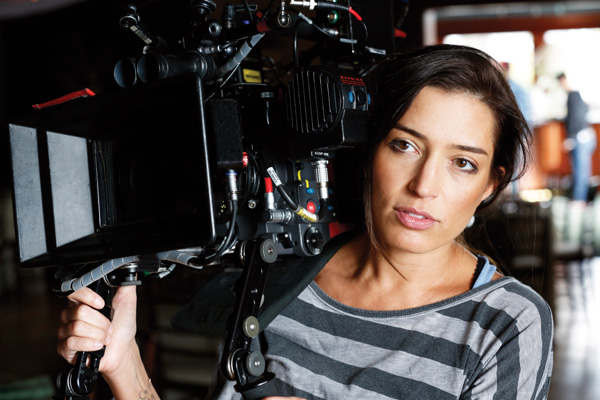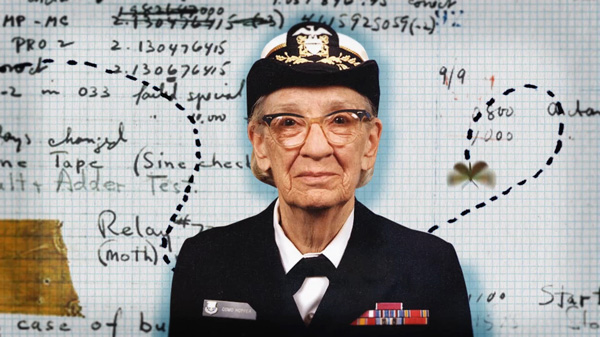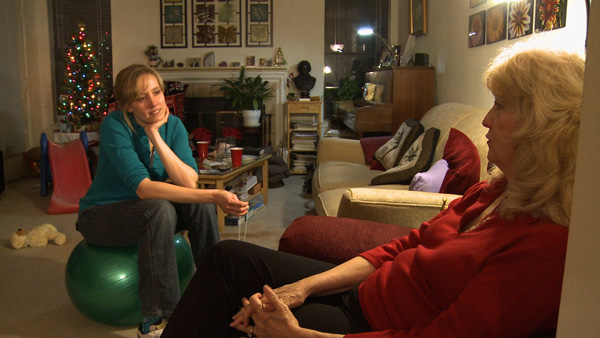
Photo by John Johnson.
BY DUSICA SUE MALESEVIC | While Hollywood continues its trend toward a dearth of female directors, the Tribeca Film Festival has bucked it — featuring work from 30 women, in a lineup unspooling April 15–26.
Cara Cusumano, senior programmer, said that the festival has always been supportive of female directors and noted that it was co-founded by a female producer, Jane Rosenthal.
The influx of female directors into TFF’s upcoming fourteenth edition, she said, is part of the festival’s broader mission to promote a diversity of voices in filmmakers “and that’s across the board, in terms of ethnic diversity, very young filmmakers, female directors, folks from different parts of the world.”
“It’s really interesting to us to kind of put all those voices together and see where they’re telling the same story or maybe where the stories are different,” Cusumano said in a phone interview, “and there’s an interesting conversation to be had. Female directors are not well-represented in Hollywood or in a lot of major festivals, so we felt like there was space to celebrate the work being done.”
The percentage of women directors working on top-grossing films has actually declined over the last 17 years or so — from nine percent in 1998 to seven percent in 2014, Dr. Martha M. Lauzen, executive director for the Center for the Study of Women in Television and Film at San Diego State University, wrote in an email to Chelsea Now.
Lauzen, a professor of television, film and new media, said that there has been no improvement in the employment of women directors on the top 250 domestic grossing films.
The percentage of women directing documentary films over the last seven years has remained stable at 28 percent while the percentage of women directing independently-produced narrative features has increased slightly from 15 percent in 2008-09 to 18 percent in 2013-14, she said.
“[It’s] definitely good news to us, when we crunched the numbers and realized how strong the representation of female directors we actually had. That’s something that we want to celebrate and highlight and continue into next year for sure,” said Cusumano.

This will be the eighth festival for Cusumano, who said she watches half a dozen movies a day each season.
“You really do start to see a lot of the same tropes and a lot of the same ideas, so any time there’s somebody doing something fresh it really does stand out and announce itself,” she said.
The festival’s mandate, she noted, is quality first. “We always looking for the strongest films, most interesting new voices, whether that’s in terms of the content or the storytelling style, the form,” she said. “We just want a program that’s really diverse and well rounded and represents what we think is the most interesting work being created each year.”
Additionally, there are 12 films that are eligible this year for the Nora Ephron Prize, said Cusumano, an award created in honor of the late writer, screenwriter and director that was inaugurated in 2013. The $25,0000 prize will go to a female screenwriter or director.
“We wanted to do something to commemorate [Ephron’s] voice and her legacy and everything she did for female voices on film,” she said.
Candidates include Reed Morano, a celebrated cinematographer, who makes her directorial debut with “Meadowland,” a feature that looks at how a couple copes with the their son’s disappearance. Kate Lyn Sheil, an actress who also co-wrote a Civil War film called “Men Go to Battle,” is also a contender. On the international side, French actress-writer Helene Zimmer directed “Being 14,” or “A 14 ans.”

While home for the holidays in Alabama, Kelly discusses courtship with her mother. The documentary “A Courtship” is Amy Kohn’s directorial debut.
Cusumano also highlighted some documentary premieres. Ricki Stern and Annie Sundberg will show a new piece about hip-hop artist Che “Rhymefest” Smith and his relationship with his father called “In My Father’s House.”
Abigail Disney is debuting as a director with her documentary “The Armor of Light,” which delves into the connection between gun culture and the Christian right. There is also the world premiere of “Code,” which Cusumano called a “timely important work from a female director,” Robin Hauser Reynolds, about the paucity of women and minorities in the tech industry, specifically as software engineers.
In addition, there are strong women — Misty Copeland, Mary J. Blige and Roseanne Barr — anchoring documentaries this year as subject matter, she said.
This reporter watched “A Courtship,” a beautifully shot and thought-provoking documentary that explores Christian courtship through the Wright family. Ron and Dawn Wright are raising their two daughters to adhere to this type of arranged courtship, where a woman and man save their first kiss for each other until they are wed. Ron would work as the intermediary between the two girls and their potential suitors, vetting them before they would meet.
The Wrights also have a spiritual daughter, Kelly Boggus who found Jesus later in life and was now planning to save her next kiss for her husband, explained the director Amy Kohn.
Kohn, who has a background in reality shows and documentaries as a producer and showrunner, makes her debut as a director. She was doing research for a reality show when she came across Christian courtship and Ron’s website, beforethekiss.com.
“I was really surprised,” she said in a phone interview. “I had absolutely no idea that something like this existed in the United States.”
It took her five to six months of talking on the phone and via Skype about what filming would entail, before the Wrights and Boggus agreed. Kohn filmed for a year and it took four years to complete the documentary.
Funding the film was a huge challenge, she said. She launched an Indiegogo campaign for finishing funds and several people who worked on the film did so for less than their normal rate.
“Otherwise, what I did was I was basically working to pay for the film,” she said. “I would work and work and work and save up money.”
“A Courtship” will have its world premiere at the Tribeca Film Festival.
“I’m absolutely thrilled to be part of the Tribeca Film Festival,” said Kohn. “I’m honored to be a part of something that’s showing so many interesting films with so many amazing filmmakers. When I started out the project, I don’t think I even imagined that it would come this far.”
Kohn said that she appreciates and is happy to be part of a festival that recognizes so many female directors. There are challenges for women filmmakers and it is more difficult for women to succeed in the entertainment industry, she said, but that is certainly not limited to just this one industry.
Having confidence in one’s work is important, she said. Being at several pitch meetings, she said, “A lot of time men tend to exude just more automatically a sense of confidence about their work, which may or may not be related to the quality of the work.”
For more information, visit tribecafilm.com/festival or call 646-502-5296.




































